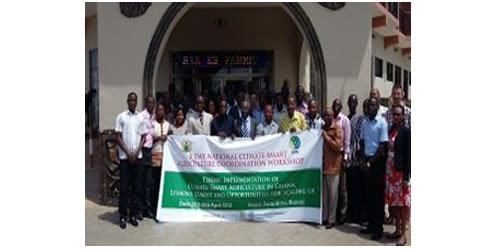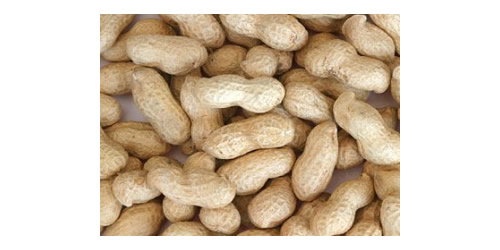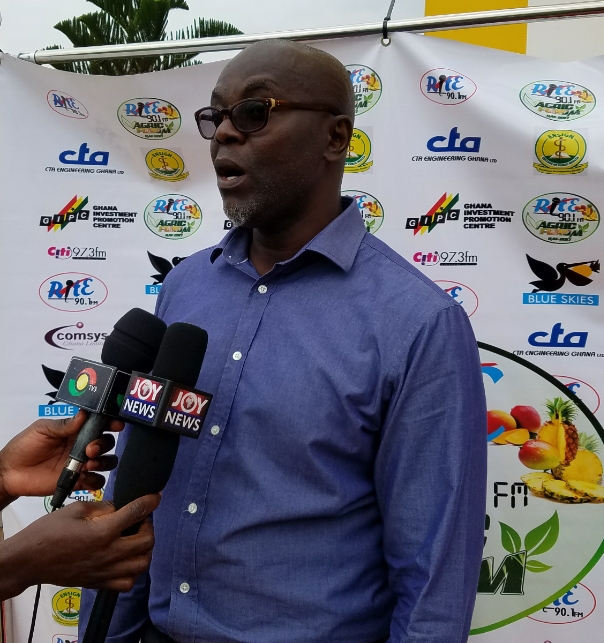MoFA Scaling-up climate change policies to benefit farmers

Ghana’s attempt to deal with the impact of worsening climate change conditions on agriculture will fall short if concerted efforts are not made to expose policies on climate change to farmers.
The global campaign to address the threat of climate change to agriculture has brought about several initiatives as part of measures to ensure sustainable food production and food security.
However, as various stakeholder-bodies continue to engage in sharing ideas and information to identify best approaches for tackling the effects of this global phenomenon on agriculture, policies that are birthed from these engagements have been asked to be packaged to the understanding of farmers.
The Director of Crops Services Directorate of the Ministry of Food and Agriculture (MoFA), Mr. Asante Krobea Emmanuel, has observed that despite several years of work by various agencies and institutions on climate change, many farmers still remain with the old agricultural practices.
He explained that if farmers do not get to hear of the good initiatives, information and technologies that exist on climate change, agricultural production will continue to decline.
To this end, he said, the Ministry of Food and Agriculture is ensuring that every activity, project, plans designed for agriculture production will include issues that addresses the effects of climate change. “‘This is because climate change will continually face agricultural production, and therefore requires all stakeholders to be aware and able to incorporate these initiatives in their plans to address climate change.”
The Director of Crops Services said the yearly worsening climatic conditions pose a threat to agriculture and food security. He noted for instance that this year the rains have come a bit earlier than expected, but pointed out that the challenge is not with the volume of rainfall recorded annually but its spread.
MoFA is therefore said to be considering promoting irrigation systems and various technologies to conserve soil moisture to assist farmers’ failure to have consistent rainfall.
These came up in an interview with B&FT at the sidelines of a 3-day national climate-smart agriculture coordination workshop, organised by MoFA in collaboration with the Food and Agriculture Organisation (FAO), in Kumasi.
The transition from Millennium Development Goals (MDGs) to Sustainable Development Goals (SDGs) in September last year awakened all nations to beef-up efforts at promoting human well-being across all levels.
At COP21 in December 2015, a landmark new global climate change agreement was adopted by the 195 countries who are parties to the United Nations Framework Convention on Climate Change (the framework Convention). All parties agreed to take action on climate change, reflecting their different national circumstances and responsibilities.
Agriculture, food security, ending hunger, and sustainable development featured strongly in the Paris Agreement. Safeguarding food security, ending hunger, and in particular vulnerabilities of food production systems to the adverse effects of climate change, were key on the agenda.
“By this, a more inclusive concept of ‘food security’ is needed — such as puts together efforts aimed at strengthening the global response to climate change in the context of sustainable development and efforts to eradicate poverty.”
FAO, through the project ‘Support Transition Toward Climate-Smart Agriculture Food Systems’, is supporting government to stimulate an enabling environment for scaling-up CSA for the emergence of agricultural food systems that are more climate-smart through improved coordination and alignment of policies, strategies and elaborate investment frameworks to decentralised levels.
The concept underlying climate-smart agriculture is basically an integration of the three dimensions of sustainable development — being economic, social and environmental — by jointly addressing food security and climate challenges.
FAO Representative to Ghana, Haile-Gabriel Abebe, emphasised the need to collaborate across all levels to bring on board diverse views, opinions and suggestions as to the best approach for tackling issues of climate change, agriculture and environment.
He said the workshop offers a platform to build coordination among stakeholders so as to achieve greater results.
Source: GNA





